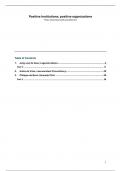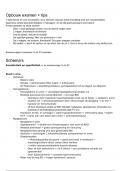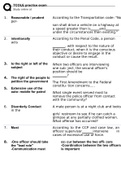Class notes
Summary Positive Institution: organisations - HRS Master UVT
- Course
- Institution
This document contains all the information gathered from the interviews with three practitioners conducted during the Positive Institutions course on the topic of Positive Organizations, as part of the Master HRS program at Tilburg University for the academic year . Interviews conducted with: ...
[Show more]






